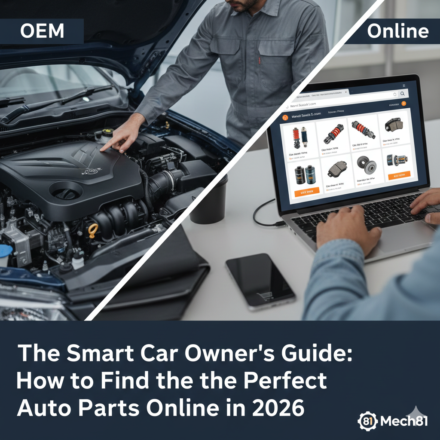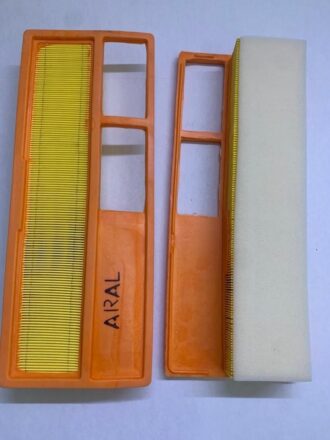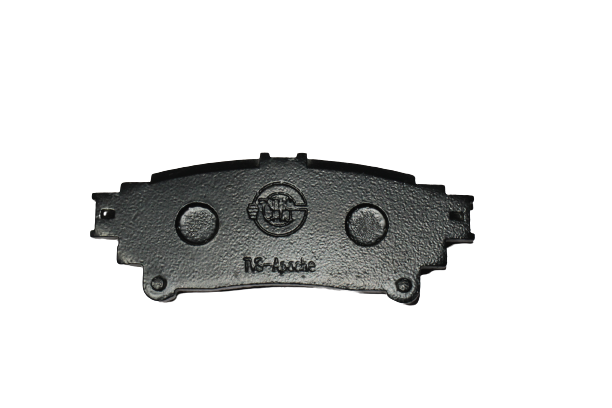Sourcing Auto Parts in India: Tips for Mechanics and Garage Owners
In India’s growing automotive market, finding reliable and affordable auto parts constantly challenges mechanics and garage owners. With an influx of vehicles of varying makes and models, ensuring that you have the right parts at the right price is crucial to running a successful business. However, with so many options and suppliers available, choosing the best sources for your auto parts needs can be overwhelming.
This blog will offer useful tips for mechanics and garage owners on sourcing high-quality auto parts in India to meet customer demands efficiently and effectively.
1. Understand Your Market and Customer Base
Before you begin sourcing auto parts, it’s important to understand the type of vehicles you most commonly service and the specific needs of your customers. India’s automotive market is diverse, with a mix of domestic, Japanese, Korean, European, and American car brands. Each of these brands requires different types of parts, ranging from common to hard-to-find components.
Key Considerations:
- Popular Car Models: Identify the most common vehicles you service. This will help you stock the right parts and avoid over-purchasing unnecessary components.
- Customer Preferences: Some customers may prefer OEM (Original Equipment Manufacturer) parts, while others are comfortable with aftermarket options. Understanding these preferences will help you source accordingly.
2. Build Relationships with Reliable Suppliers
One of the most important aspects of sourcing auto parts is building long-term relationships with trusted suppliers. This not only ensures a steady supply of parts but also offers potential benefits such as discounts, faster delivery, and access to hard-to-find components.
Where to Find Reliable Suppliers:
- Authorized Dealers: OEM parts are best sourced directly from authorized dealers to ensure authenticity and quality. These parts are guaranteed to fit and function as intended by the vehicle manufacturer.
- Aftermarket Suppliers: For more affordable options, consider partnering with reputable aftermarket suppliers. Ensure that these suppliers offer high-quality components that meet industry standards.
- Local Distributors: Local distributors and wholesalers can offer parts at competitive prices, especially for fast-moving components like filters, brakes, and belts.
Pro Tip: Always verify the authenticity of the parts you’re purchasing, especially when dealing with third-party suppliers. Counterfeit parts are common and can damage your reputation if used in repairs.
3. Leverage E-commerce for Auto Parts
In recent years, e-commerce platforms have revolutionized the auto parts market in India. Online marketplaces offer a wide range of parts, often at competitive prices, and can be a convenient option for mechanics and garage owners. These platforms allow you to compare prices, read reviews, and access hard-to-find components that might not be available locally.
Benefits of Sourcing Parts Online:
- Competitive Pricing: E-commerce platforms often offer lower prices due to the elimination of middlemen and discounts from bulk purchases.
- Availability of Parts: Online stores provide access to both OEM and aftermarket parts, often with a wider variety than local suppliers.
- Convenient Delivery: Many online platforms offer quick delivery options, ensuring you get the parts you need without long delays.
Popular Online Auto Parts Platforms in India:
- Boodmo
- MotrParts
- SpareMart
Caution: Be wary of counterfeit parts and low-quality components when purchasing online. Stick to well-reviewed sellers and verify the authenticity of the parts.
4. Know When to Choose OEM vs. Aftermarket Parts
Both OEM and aftermarket parts have their pros and cons, and understanding when to choose one over the other can significantly affect your business.
OEM (Original Equipment Manufacturer) Parts:
- Advantages: Guaranteed fit, high quality, manufacturer-backed warranties.
- Disadvantages: Higher cost, longer lead times for delivery.
Aftermarket Parts:
- Advantages: More affordable, widely available, often just as reliable as OEM parts.
- Disadvantages: Variable quality, potential compatibility issues.
When to Use OEM Parts:
- For high-end cars, critical components (engine parts, brakes, suspension).
- When your customers demand manufacturer-approved repairs.
When to Use Aftermarket Parts:
- For routine repairs, non-critical parts (filters, belts, lights).
- When your customers are looking for budget-friendly solutions.
5. Stock Common Parts for Efficiency
To avoid delays in repairs, it’s a good idea to keep an inventory of commonly used parts. Stocking frequently used components can save you time and provide quicker service to your customers, increasing satisfaction and repeat business.
Commonly Stocked Auto Parts:
- Oil Filters and Air Filters: These are required for routine maintenance, and having a range of sizes ensures that you can service most cars without delay.
- Brake Pads and Discs: Essential for regular maintenance and safety, these parts wear out quickly and are in constant demand.
- Suspension Components: Shocks, struts, and control arms are often replaced, especially for vehicles driven on India’s rough roads.
- Belts and Hoses: Wear-and-tear items like serpentine belts and radiator hoses should always be in stock due to their frequent replacement.
Tip: Monitor your stock levels regularly and keep a record of fast-moving parts to avoid shortages.
6. Evaluate Costs and Quality Carefully
While it may be tempting to go for the cheapest option when sourcing parts, it’s essential to strike a balance between cost and quality. Low-quality or counterfeit parts may fail sooner, leading to repeat repairs and damaging your reputation.
Cost Considerations:
- Bulk Purchasing: Buying in bulk can save you money, especially for fast-moving parts like filters and brakes.
- Shipping Costs: Factor in shipping costs, especially if sourcing parts online or from distant suppliers. Look for suppliers who offer free or discounted shipping.
- Warranties: High-quality parts often come with warranties, protecting you from losses in case of failure or defects.
Tip: Invest in quality parts for critical components (brakes, suspension, electrical systems), as these affect both performance and safety.
7. Keep Up with Trends and Technological Changes
The auto parts industry is constantly evolving, with new technologies, materials, and designs emerging. For instance, the growing popularity of electric vehicles (EVs) is changing the landscape of auto parts, with different requirements for batteries, electric motors, and electronics.
How to Stay Informed:
- Join Industry Associations: Being a part of industry groups can keep you informed about trends, innovations, and supplier recommendations.
- Attend Trade Shows: Auto parts expos and trade shows offer insights into new products and technologies, giving you a competitive edge.
- Follow Online Communities: Many mechanics and garage owners share sourcing tips and product reviews on online forums and social media groups.

Conclusion
Sourcing quality auto parts in India is a critical task for mechanics and garage owners, directly impacting customer satisfaction and the success of your business. By understanding your market, building relationships with trusted suppliers, leveraging e-commerce, and striking a balance between cost and quality, you can ensure that your garage runs efficiently and delivers top-notch service.
At BharatAutoSolution, we provide access to a wide range of high-quality auto parts, ensuring that you get the best components for your customers’ vehicles. Whether you’re looking for OEM or aftermarket parts, we’re here to help you source the right products for every repair.





